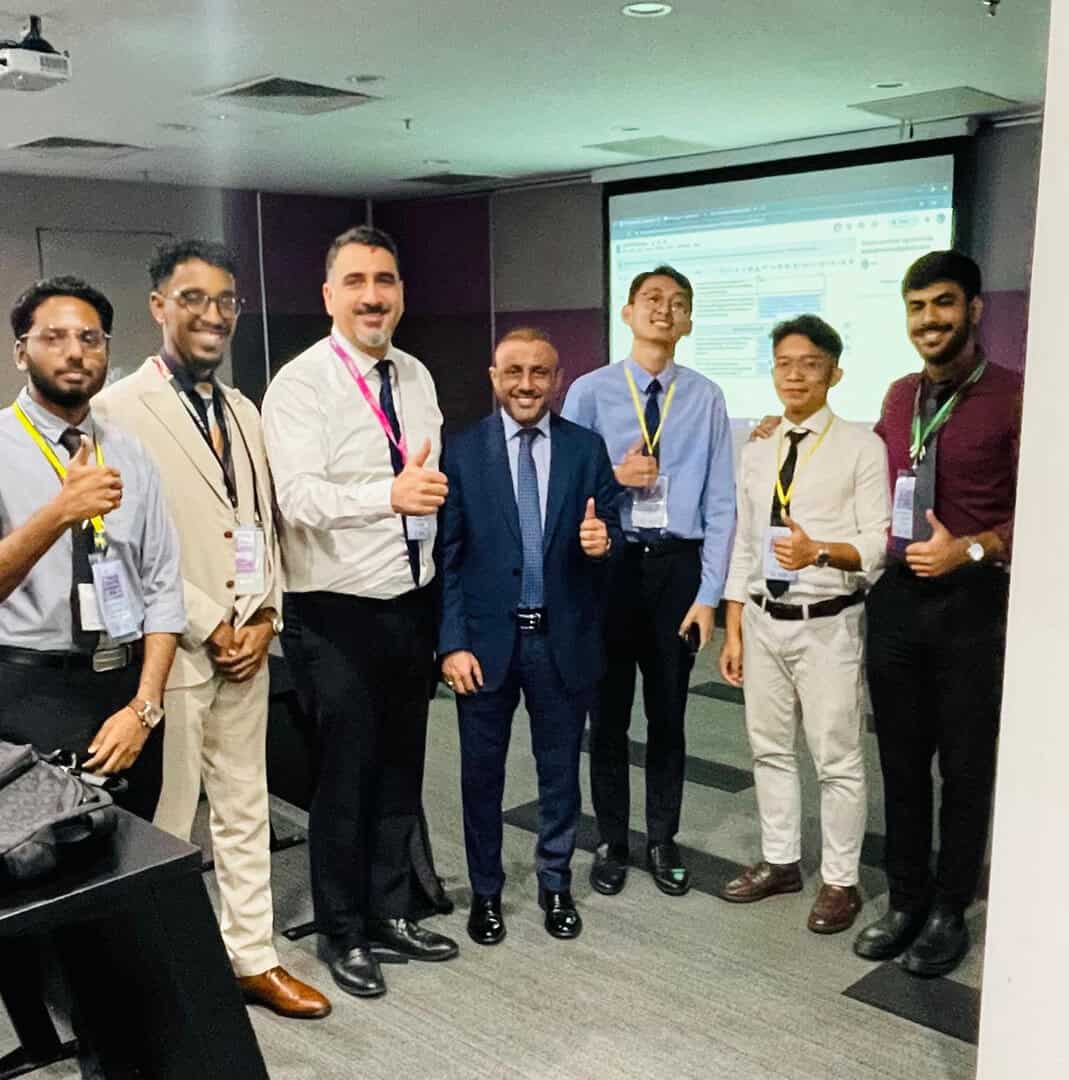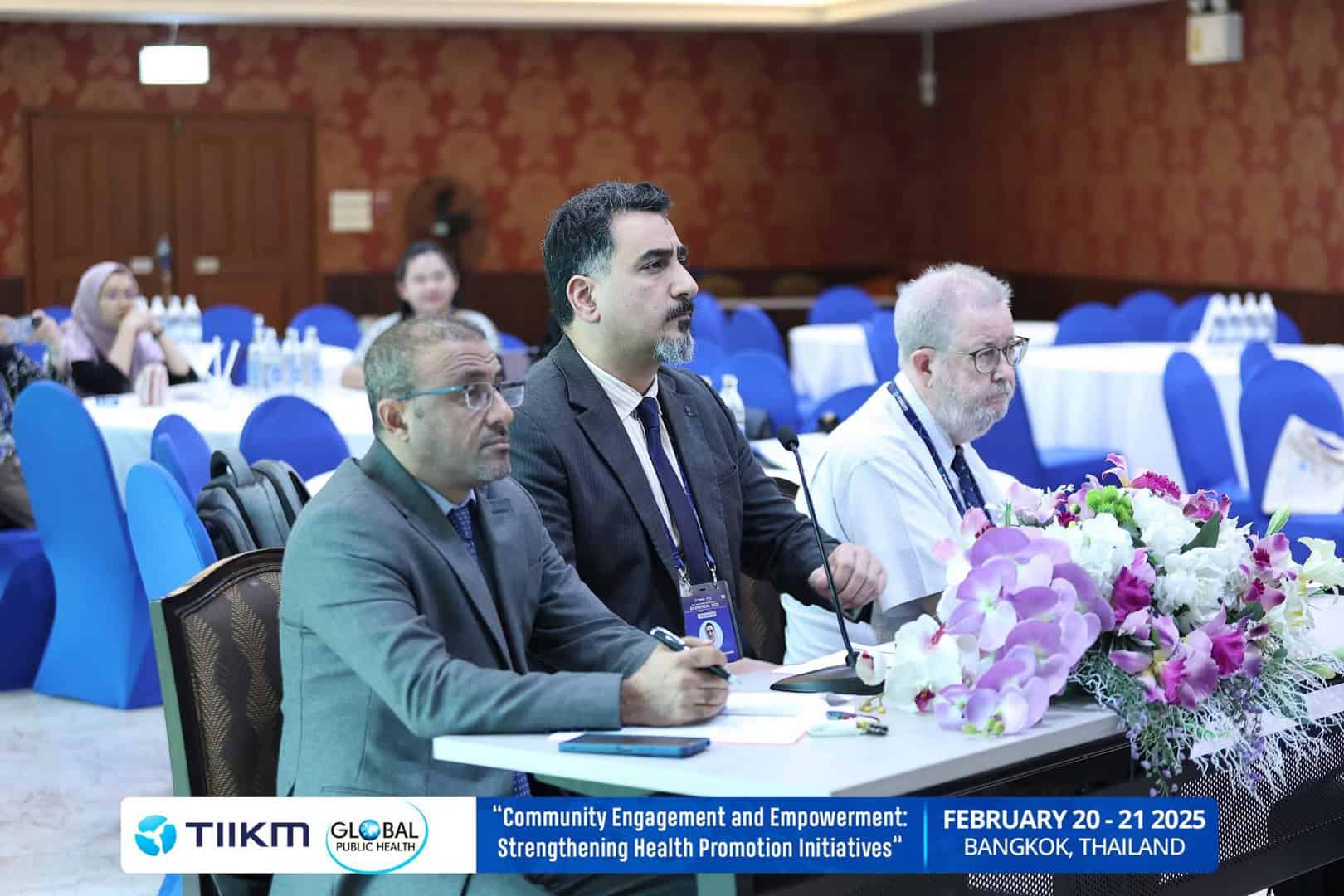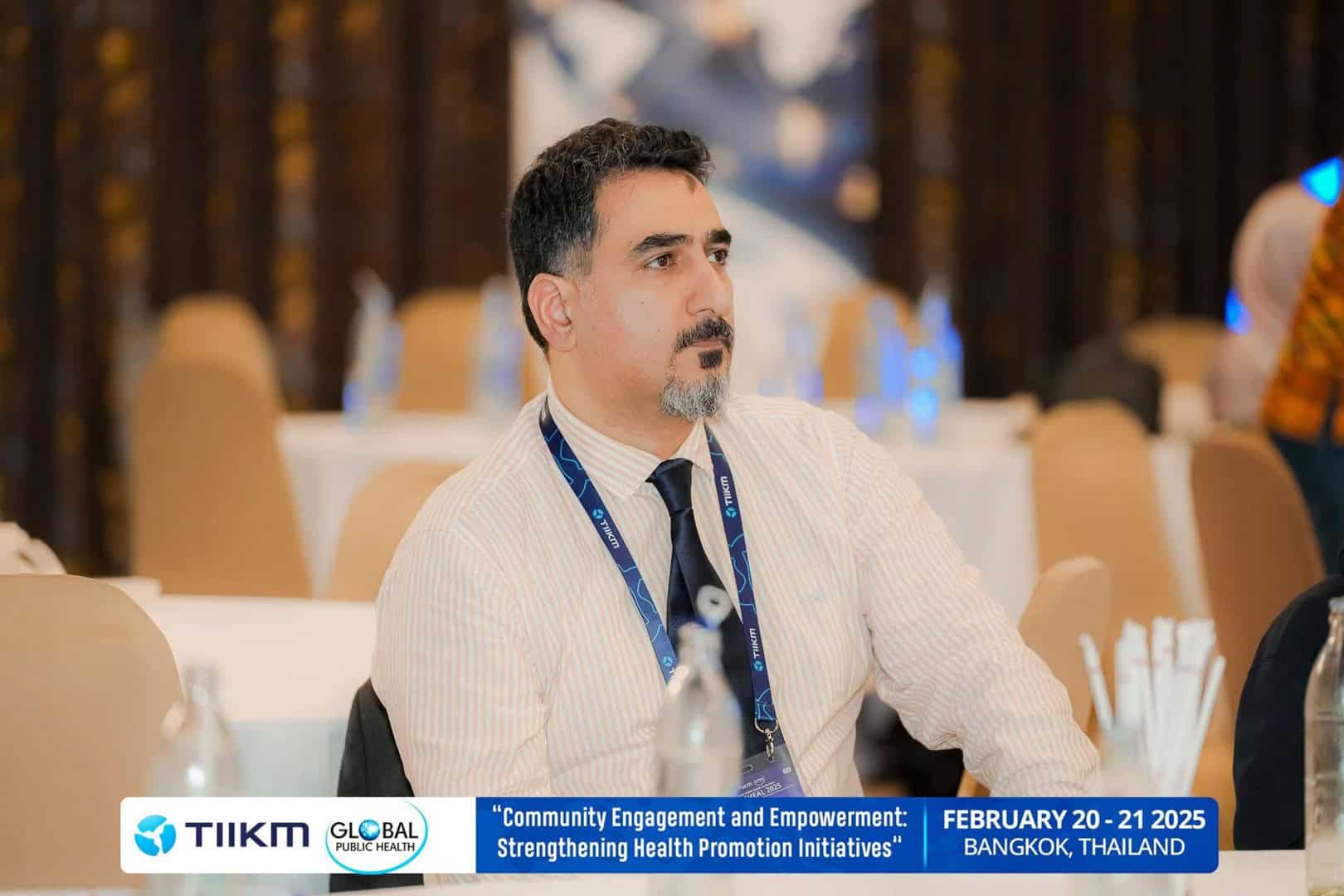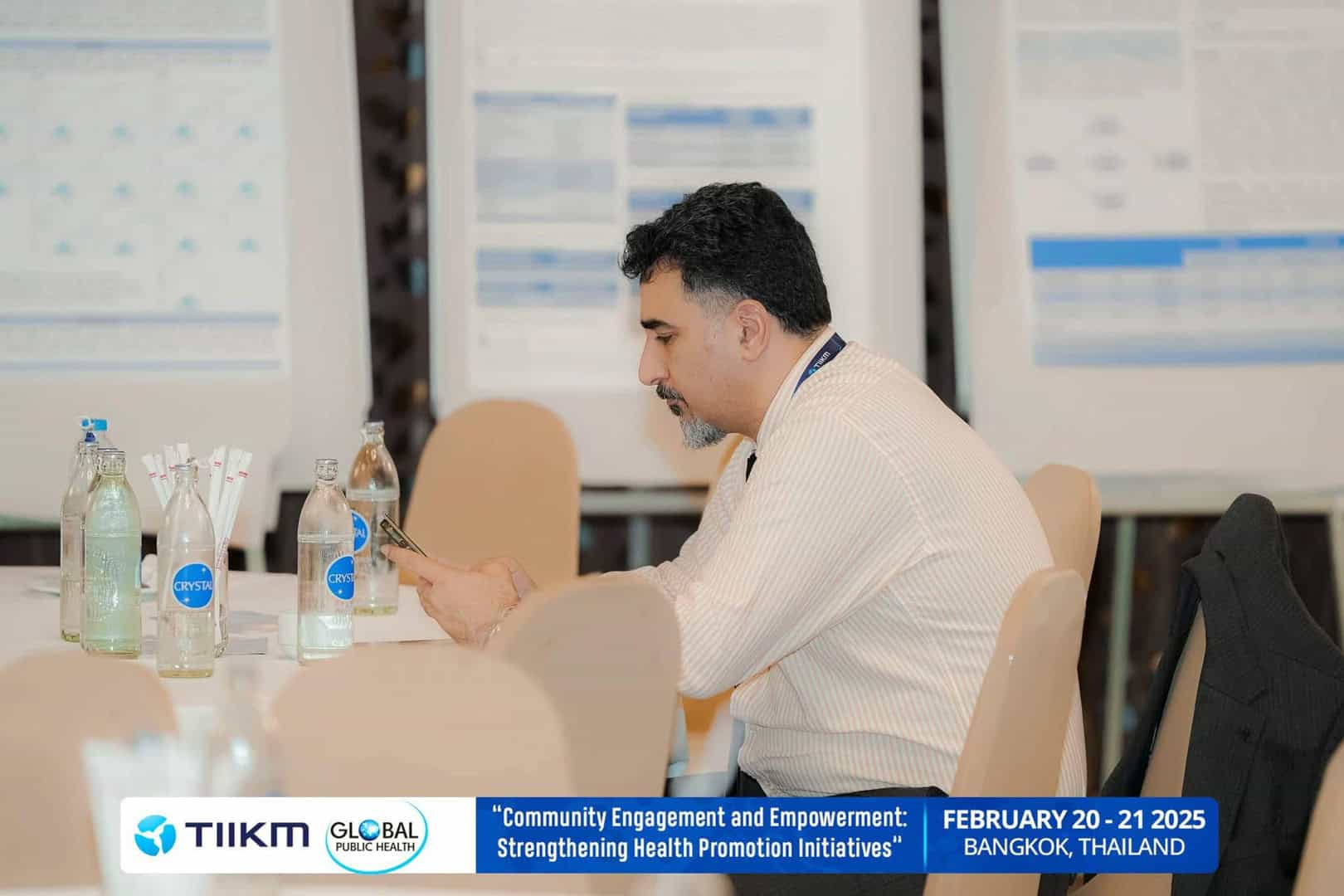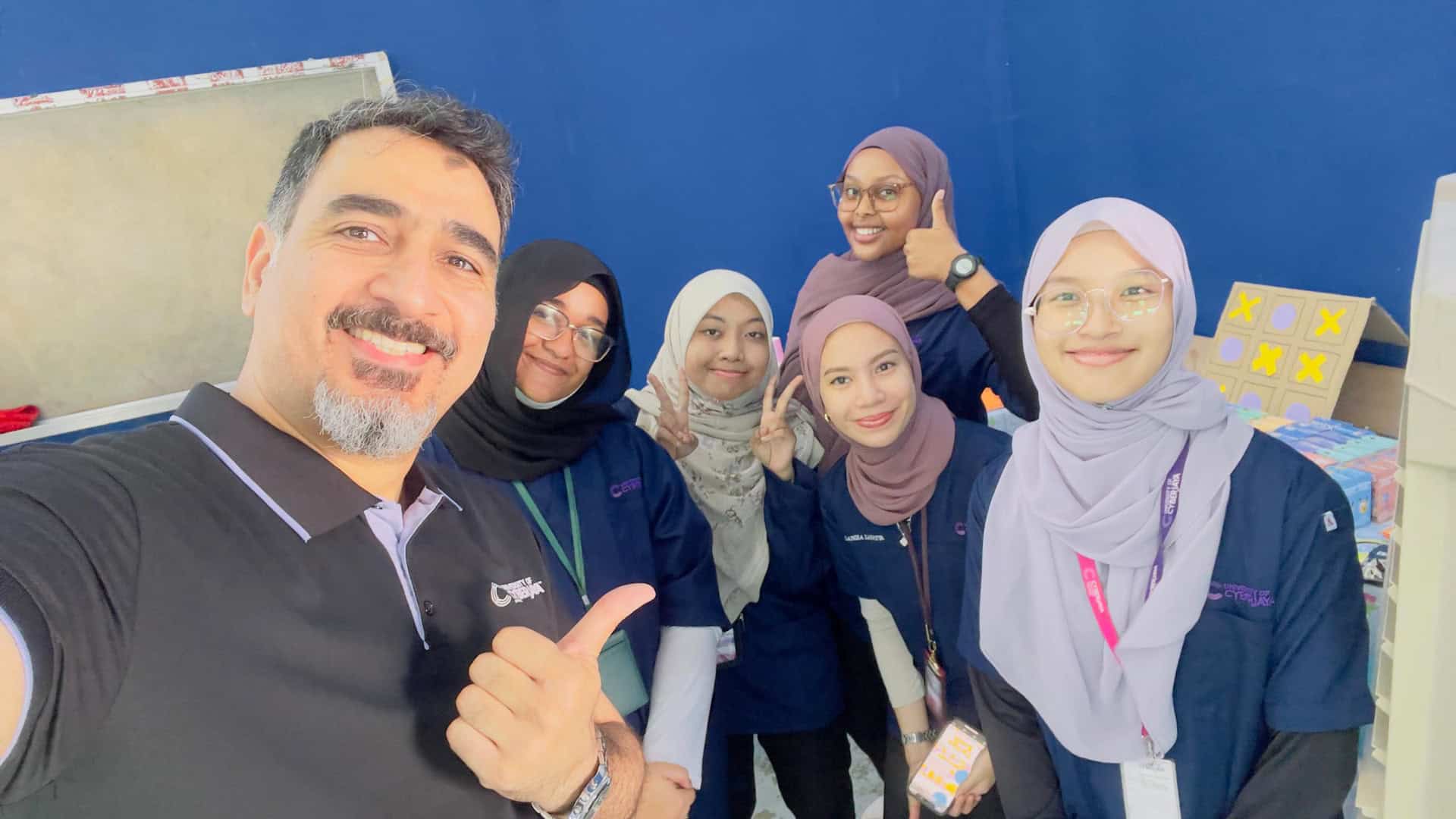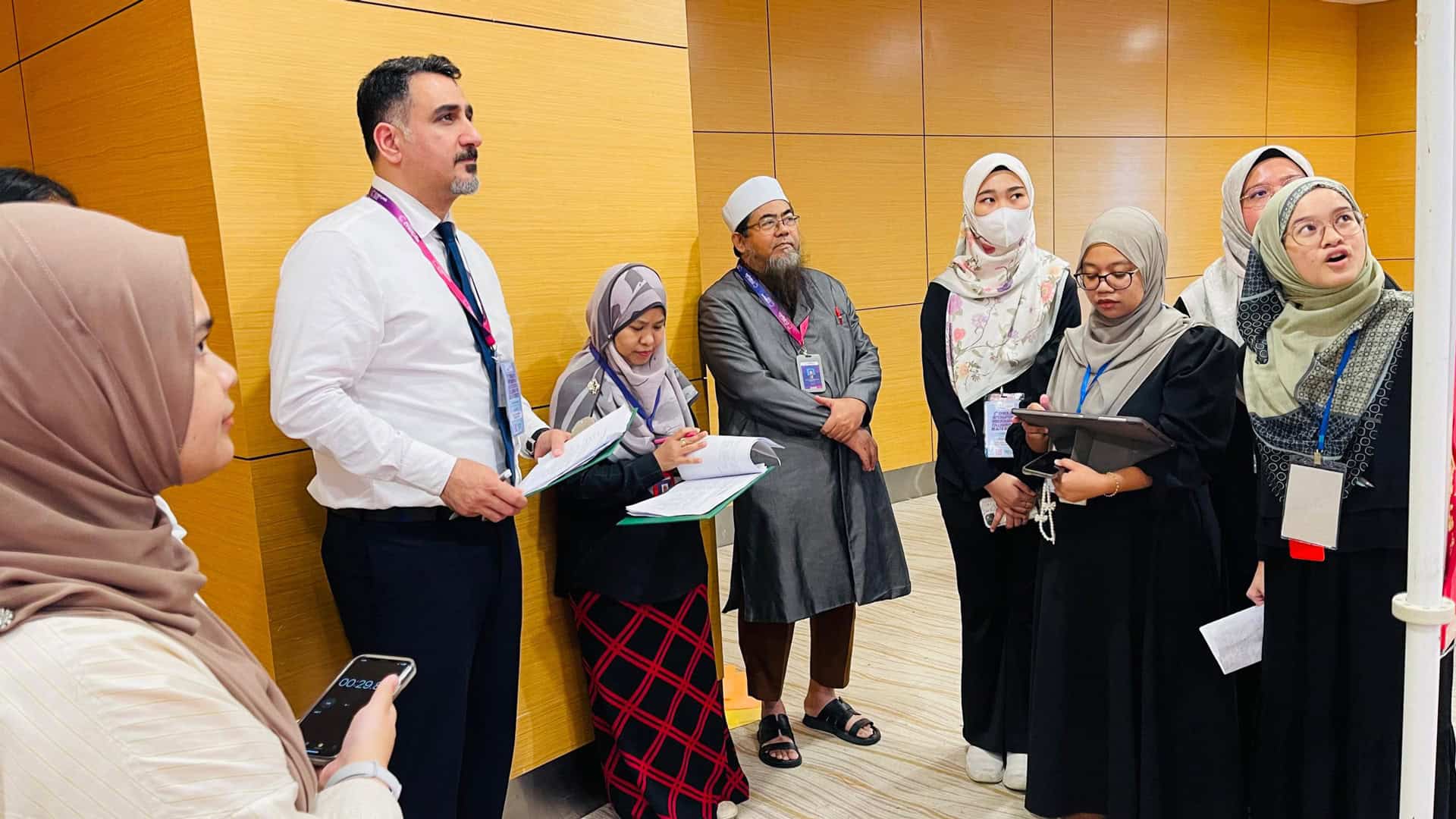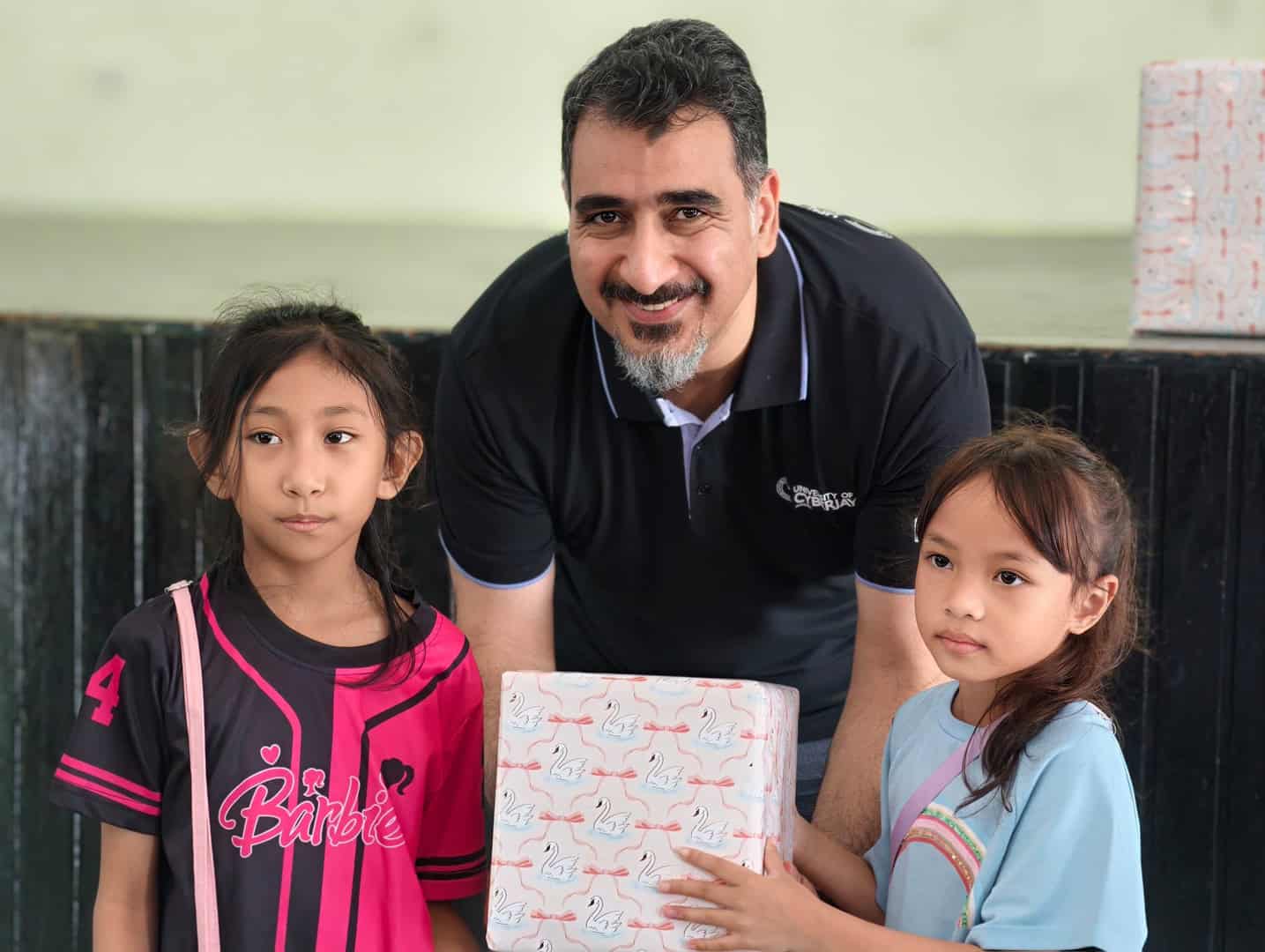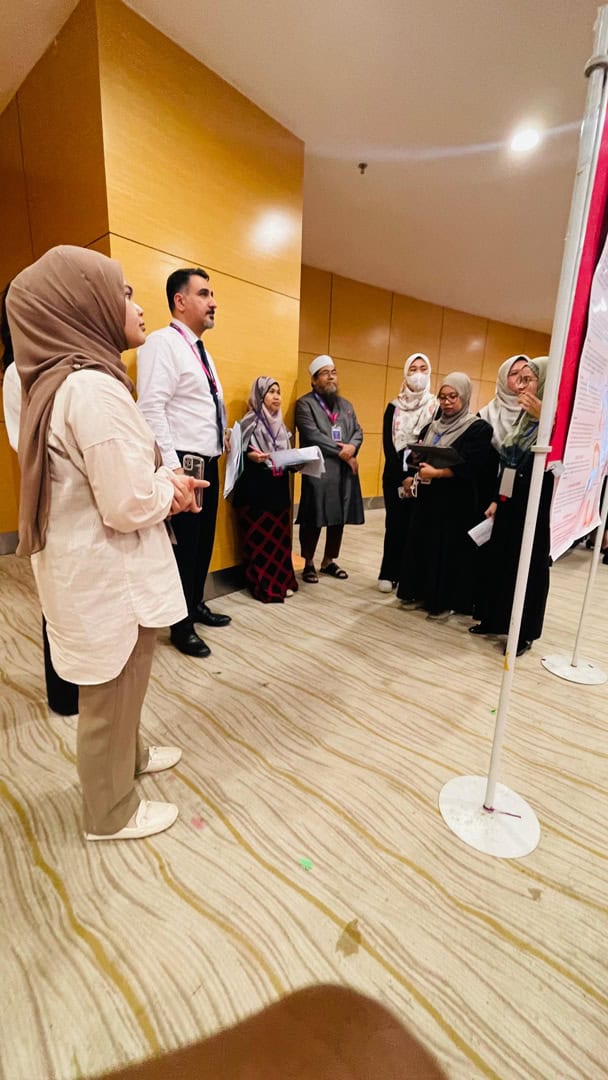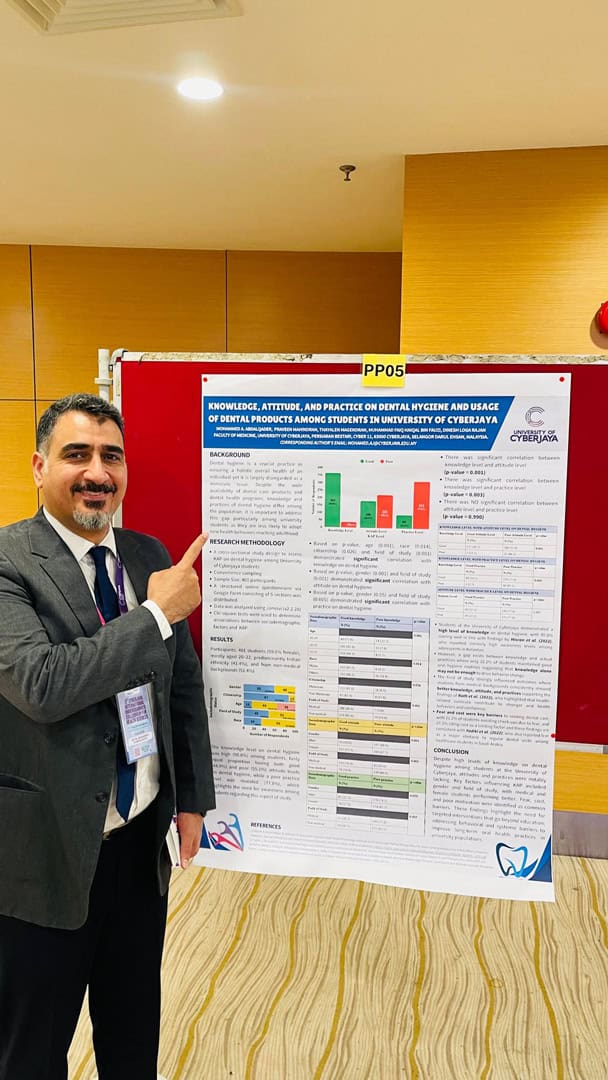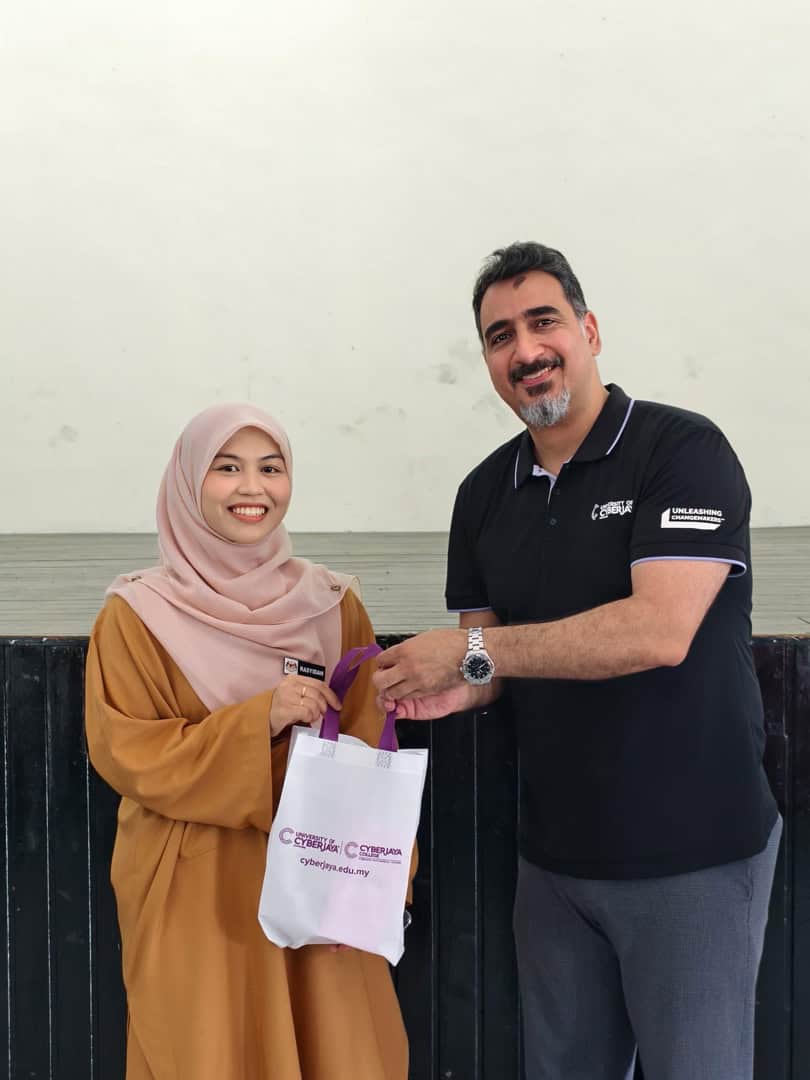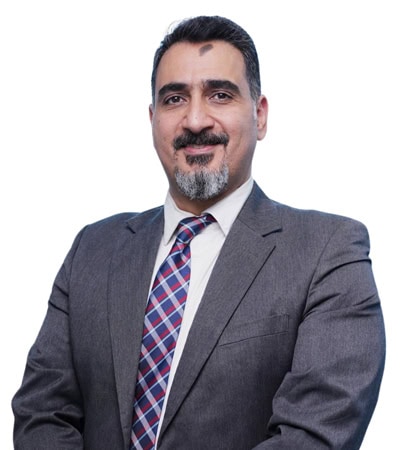
Dr. Mohammed Abdalqader
Associate Professor
Academic & Professional Journey
Could you tell us about your journey into the field of Community Medicine and Public Health? What inspired your interest in this area?
My journey in community medicine began in 2008 when I first came to Malaysia to pursue my postgraduate studies at Universiti Kebangsaan Malaysia (UKM). I enrolled in the Master of Community Health programme, which sparked my deep interest in preventive medicine, epidemiology, and the social determinants of health. In 2010, I continued my academic path with a PhD in Community Health, which I successfully completed in 2015.
My inspiration stemmed from seeing how prevention and education can save more lives than treatment alone. Growing up in a healthcare environment, I realized that medicine should extend beyond hospital walls—to improve communities, influence policy, and promote sustainable health outcomes.
You’ve worked across multicultural and multidisciplinary environments. How has this shaped your perspective as a medical educator and researcher?
Working in Malaysia and collaborating with colleagues from diverse cultural, ethnic, and professional backgrounds has profoundly shaped my approach. It taught me that health challenges must be addressed through inclusivity, empathy, and context-based strategies. As an educator, I value diversity in thought and encourage students to appreciate different perspectives. As a researcher, I have learned that multidisciplinary collaboration—combining clinical, behavioural, and data sciences—produces the most meaningful and sustainable public health solutions.
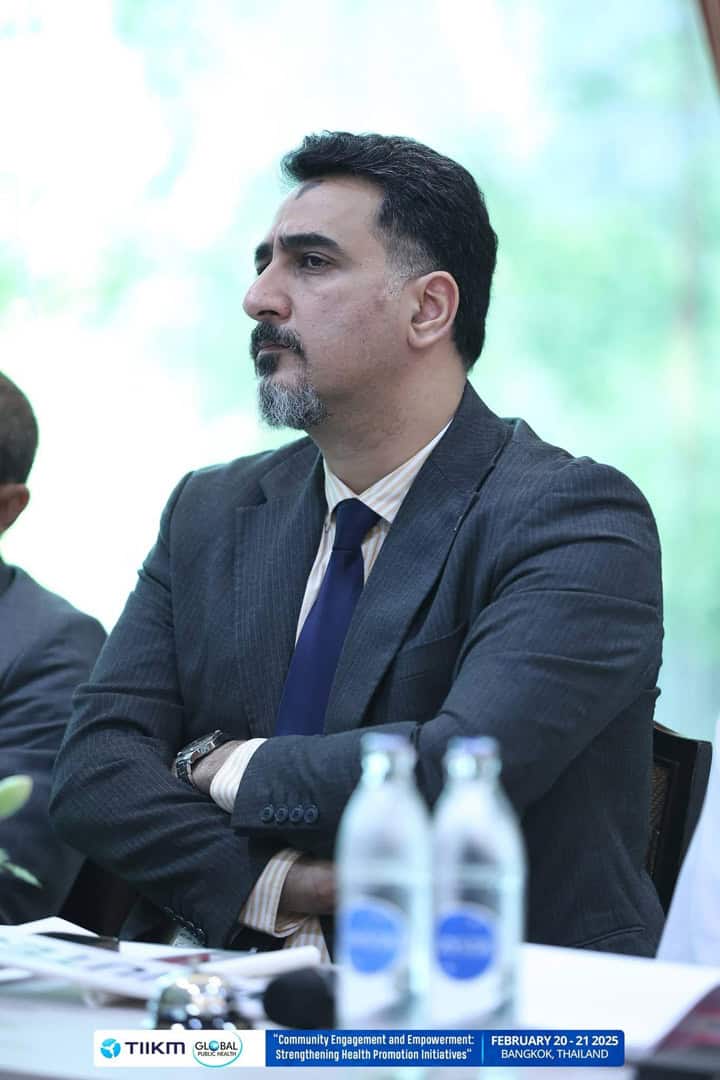
Research Contributions & Focus
Your research covers a broad spectrum—from antibiotic resistance and diabetic foot healing to nutrition and geriatric health. What drives your choice of research topics?
My research is driven by community relevance and public health impact. I choose topics that address pressing health burdens in society—whether it’s antibiotic misuse, non-communicable diseases, or aging populations. I am particularly drawn to research that translates directly into preventive interventions and improved quality of life. Each project aims to close a gap between knowledge and practice in real-world healthcare.
Which of your research findings do you believe has had the most meaningful impact on public or community health?
Among my studies, those related to SDG and those related to diabetic wound healing and antibiotic resistance have been particularly impactful. The work highlighted the importance of patient education, appropriate antibiotic use, and multidisciplinary care in reducing complications. Similarly, my research on nutritional habits and geriatric well-being has contributed to developing community-based health promotion programs targeting elderly populations.
What do you find most challenging and rewarding about conducting public health research in Malaysia and the region?
The most challenging aspect is balancing the diversity of health issues in populations. However, this diversity also makes research deeply rewarding—each study provides new insights applicable to multicultural societies. The strong collaboration among universities, government agencies, and NGOs in Malaysia has been a key factor in overcoming many of these challenges.
Teaching & Mentorship
As a mentor to numerous undergraduate, master’s, and PhD students, what principles guide your supervision and academic support?
My supervision philosophy is based on three principles: independence, integrity, and innovation. I encourage students to think critically, design their own ideas, and maintain ethical research standards. I see my role not just as a supervisor but as a mentor who empowers them to build confidence, scientific curiosity, and lifelong learning skills.
How do you integrate your research expertise—especially in biostatistics and data analysis—into your teaching and workshops on SPSS, research methodology, and publication skills?
I believe in learning by doing. I integrate real data from published or ongoing projects into my workshops and classes, allowing students to analyze authentic datasets using SPSS or JASP. I also emphasize interpretation and reporting—helping students understand that statistics are not just numbers but stories about populations. My goal is to make data analysis approachable, meaningful, and directly relevant to their research goals.
Expertise in Biostatistics & Methodology
You’re well-known for your proficiency in SPSS and JASP. How important do you think statistical literacy is for today’s healthcare researchers?
Statistical literacy is essential—it is the language of modern science. In today’s evidence-based world, healthcare professionals must be able to design studies, analyse data, and critically appraise literature. Without a solid understanding of biostatistics, even the best research ideas cannot be validated appropriately or communicated. Tools like SPSS and JASP have made this knowledge more accessible, but understanding the concepts remains crucial.
What common mistakes do you see students make in research design and data analysis, and how can they avoid them?
Common mistakes include poor formulation of research questions, inadequate calculation of sample sizes, misuse of statistical tests, and insufficient attention to data assumptions. To avoid these, I always advise students to plan early—consult statisticians during proposal development, not after data collection. Understanding the purpose of each test and maintaining data integrity are vital to producing credible results.
In your experience, how can universities better prepare students to conduct rigorous, ethical, and impactful research?
Universities should emphasize early exposure to research ethics, hands-on methodology training, and mentorship. Embedding research components into undergraduate curricula and fostering interdisciplinary collaboration can strengthen students’ skills. Creating supportive environments where students feel guided and valued encourages more ethical and impactful research practices. At UOC, we start teaching these concepts from year 2 in our MBBS programme and continue through year 3 and until year 4, upon completion of the REBM project report.
Vision & Future Direction
How do you see technological advancements and data analytics shaping the future of epidemiology and community medicine?
Technology is transforming public health. Big data, artificial intelligence, and digital health surveillance are revolutionizing how we detect, predict, and respond to diseases. These tools allow for faster, more accurate, and more personalised interventions. However, while technology enhances efficiency, human insight remains irreplaceable. The challenge is integrating innovation with compassion and community engagement.
Finally, what advice would you offer to young researchers who aspire to make a difference in the field of public health?
Be curious, persistent, and ethical. Focus on solving real problems that matter to people’s lives. Learn continuously—especially about research design, statistics, and communication. Collaborate widely, stay humble, and remember that every dataset represents human lives and experiences. Impactful research begins with empathy and a genuine desire to serve communities.
